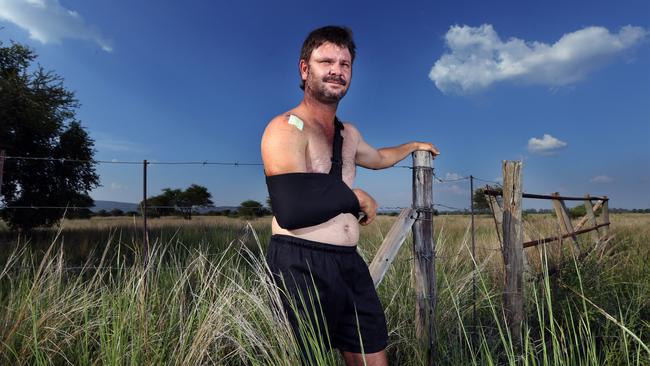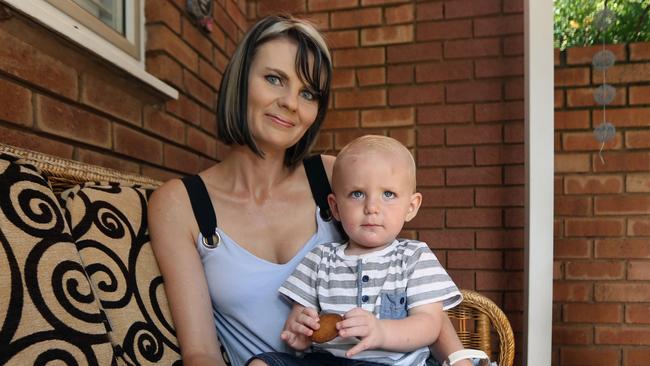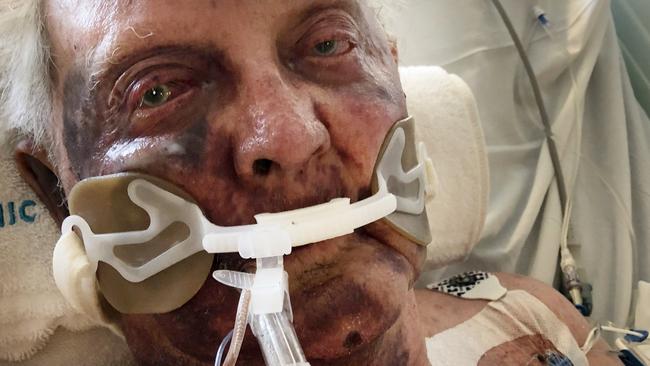The persecuted minority nobody cares about
THE human rights and refugee groups I approached were strangely silent about the white South African farmers being raped and slaughtered in their own homes, writes Paul Toohey.
Rendezview
Don't miss out on the headlines from Rendezview. Followed categories will be added to My News.
SILENCE was the response when a dozen Australian human rights organisations and experts were contacted last week about the extraordinarily cruel violence being perpetrated on white farmers in South Africa.
The Human Rights Commission, asked if there was a case for Australia providing them with humanitarian protection, or leaning on our government to pressure theirs, said South Africa was not their beat.
WHY THIS SILENCE OVER SOUTH AFRICA’S LETHAL RACISM?
WHITE SOUTH AFRICANS FEAR FOR THEIR FUTURE AS HORRIFIC FARM ATTACKS ESCALATE
The Refugee Council of Australia, vocal on persecuted minorities, did not respond at all. Australian Lawyers for Human Rights declined to address the issue directly but gave a generic statement not worth printing; Amnesty’s Australian arm had nothing to say.
News Corp Australia recently returned from South Africa where it documented numerous and increasing cases of rape and torture carried out on white farmers, who are losing the battle as their government moves to repossess land taken under colonialism and Apartheid without paying compensation.

Britain-based Australian barrister, Geoffrey Robertson, QC, did reply, saying that he was sorry to hear that new South African president Cyril Ramaphosa was following in the footsteps of ousted Zimbabwean dictator Robert Mugabe.
“However,” he said, “I should have thought that any expropriation of farms without compensation can be challenged under the constitution, and of course international law requires compensation to be fair in all the circumstances.”
He is right. And it is true that in violence and corruption-plagued South Africa, their courts have held out as the one brave remaining pillar of democracy, having fearlessly ruled against the corrupt and recently overthrown president Jacob Zuma.
But in South Africa, where many in the black majority nurse hatred for those who managed the long and painful Apartheid era, political parties are not so forgiving. The laws, if not the constitution, can be changed to make it impossible for white farmers to remain.
Already, they are facing a decimated Rand which makes selling farms difficult. And who would buy a farm with a government-issued threat to reclaim it without paying compensation?
For many white South African farmers, who are not in the position to leave the country due to lack of income or skills, they are stuck in an invidious position of being unable to sell their holdings. Worst of all, their government declines to condemn the farm attacks, which makes them more vulnerable.
Foreign Minister Julie Bishop, whose Curtin electorate in Perth is a South African stronghold, declined to comment, but issued a statement via DFAT: “The Australian Government urges the South Africa Government to ensure any changes to land ownership are not disruptive to the economy or leads to violence.”

Asked whether she had made any overtures to her South African counterpart, the reply was noncommittal.
Beneath this is a sense that Australians find white South Africans — especially the Afrikaans — hard to love.
Though the circumstances of their settlement in Africa is vastly different to white settlement in Australia, those who have come here to flee the violence mix among us seamlessly. There are more than 200,000 South African-born people living here, plus 40,000 Zimbabweans.
Having been there a couple of times, I suspect they are more like us than we care to admit. They’re a mirror to a part of our own psyche we don’t like to acknowledge.
That’s why in cricket, with Test matches currently afoot in South Africa, we are capable of clashing so intensely: it’s a case of like versus like.
Whatever the value of this layman psychoanalysis, Australia has an obligation to demand better of South Africa.
If it wants to follow the path of Zimbabwe, destroying productive farmlands, frightening off foreign investment and further inflating their currency, that’s up to them.
But the Australian government and human rights organisations cannot stand by and say nothing, just because it happens that the victims are white people, albeit with an unpleasant history.

Originally published as The persecuted minority nobody cares about


